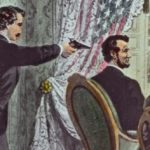 Movies and TV
Movies and TV  Movies and TV
Movies and TV  History
History 10 Dirty Government Secrets Revealed by Declassified Files
 Weird Stuff
Weird Stuff 10 Wacky Conspiracy Theories You Will Need to Sit Down For
 Movies and TV
Movies and TV 10 Weird Ways That TV Shows Were Censored
 Our World
Our World 10 Places with Geological Features That Shouldn’t Exist
 Crime
Crime 10 Dark Details of the “Bodies in the Barrels” Murders
 Animals
Animals The Animal Kingdom’s 10 Greatest Dance Moves
 Movies and TV
Movies and TV 10 Box Office Bombs That We Should Have Predicted in 2025
 History
History 10 Extreme Laws That Tried to Engineer Society
 History
History 10 “Modern” Problems with Surprising Historical Analogs
 Movies and TV
Movies and TV 10 Movie Adaptations That Ruined Everything for Some Fans
 History
History 10 Dirty Government Secrets Revealed by Declassified Files
 Weird Stuff
Weird Stuff 10 Wacky Conspiracy Theories You Will Need to Sit Down For
Who's Behind Listverse?

Jamie Frater
Head Editor
Jamie founded Listverse due to an insatiable desire to share fascinating, obscure, and bizarre facts. He has been a guest speaker on numerous national radio and television stations and is a five time published author.
More About Us Movies and TV
Movies and TV 10 Weird Ways That TV Shows Were Censored
 Our World
Our World 10 Places with Geological Features That Shouldn’t Exist
 Crime
Crime 10 Dark Details of the “Bodies in the Barrels” Murders
 Animals
Animals The Animal Kingdom’s 10 Greatest Dance Moves
 Movies and TV
Movies and TV 10 Box Office Bombs That We Should Have Predicted in 2025
 History
History 10 Extreme Laws That Tried to Engineer Society
 History
History 10 “Modern” Problems with Surprising Historical Analogs
10 Strange Tales Of The Most Notable Music Managers In The Business
When we remember bands and their history, we often overlook the men who made the bands and the music. Managers were often directly responsible for some of our favorite bands’ success, yet we typically forget about them. Though they’ve contributed greatly to their clients, managers are seen as no more than businessmen without vision, even if their vision created what we so fondly remember today. While they were often ruthless in their ways, these managers had to maintain a delicate balance. Here are some of the most notable music managers.
10 Kit Lambert
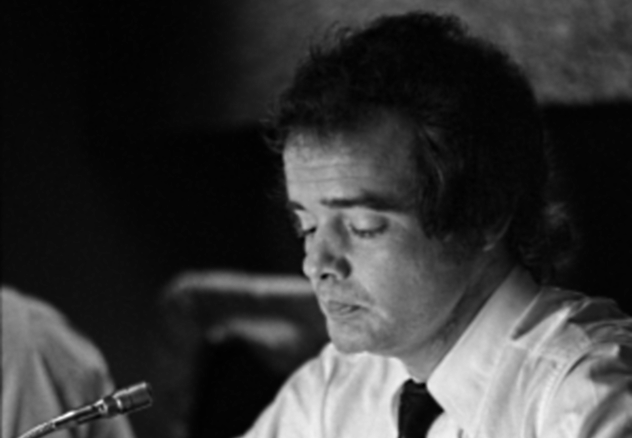
The Who is one of the most innovative and popular bands of all time. However, their first manager, Kit Lambert, has remained an almost unknown figure in spite of playing a big role in the The Who’s history. He also led a life almost as wild as the band members. The first contribution of Lambert and his business partner Chris Stamp (more on him in later) was to give the group its name.
Kit was a hard drinker and drug user who lived a colorful life before managing The Who. He was Oxford-educated and homosexual. In 1961, he attempted to chart the Iriri River in Brazil, the longest undescended river in the world. The expedition was canceled when one of Lambert’s friends was killed by a cannibalistic tribe.
After his ill-fated foray into exploration, Lambert worked in the film industry until 1963 when he and Stamp decided to manage The Who. He encouraged Pete Townshend’s songwriting along with their crazed, extravagant performances. Through his guidance, the band became one of the most successful in the world. When Townshend wrote the rock opera Tommy in 1969, it was Lambert’s idea to have it performed in actual European opera houses.
In spite of his great success, Lambert couldn’t shake his self-destructive ways, and he took a lessened role with the band after developing a severe heroin addiction. He died of a brain hemorrhage in 1981 after a drunken night out when he got into a fight at a bar. He was only 45 years old.
9 Chris Stamp

Chris Stamp, the other manager of The Who, was not a typical manager. He even admitted that he wasn’t a businessman in any way: “We don’t get deals because we’re the best negotiators . . . we’re probably the worst.” However, his sheer energy matched that of the band’s, which allowed him to work in the competitive music world. The band was enormously successful, but Stamp allowed almost unlimited spending by the band, leaving them in debt. As a manager, he also helped himself liberally to the band’s accounts, frequently taking out large amounts of cash to pay for drugs and women. He also had a penchant for luxury cars, which he had a habit of crashing. He referred to this time as “years of madness on the road, smashed cars and paid-off chicks and so on.”
Stamp and Lambert had long been friends, and both used massive amounts of drugs, almost certainly a factor in their robbing of the band. At the same time that The Who was experiencing massive success, Stamp was mentoring another musician—Jimi Hendrix. He produced Hendrix’s hit single “Purple Haze.” However, Stamp was living too hard, and the band forced him out. He would continue in his wild lifestyle until 1987, when he finally received treatment. He started a new career working as an addiction counselor. He eventually reconciled with surviving The Who band members and died in 2012 at the age of 70.
8 Allen Klein
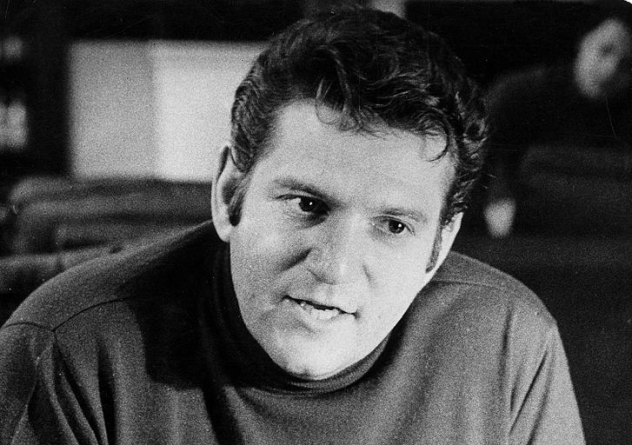
Virtually all of us reading this list have heard a song by the Beatles or the Rolling Stones. Both were the biggest bands of their era, and both were managed by the same man. Allen Klein was one of the most innovative managers of his day, becoming a powerhouse in the industry. For many, Klein was nothing but a shady dealer who was greedy, tyrannical, and cruel to those he managed. To others, he was a financial wizard who saved his clients from bankruptcy. Klein may have come off as touchy and as a bully, but that was because he was always trying to get the best for his clients.
Klein was born in New Jersey, the son of Hungarian immigrants. He had a hard youth due to his mother’s death and briefly lived in an orphanage. He joined the military after high school, went to college, and eventually started working in the music industry. Klein first managed the Rolling Stones during the 1960s.
While that brought him enormous respect and success, he always dreamed of signing the crown jewel of music at the time, the Beatles. His chance came when Beatles’ manager, Brian Epstein, died in 1967. Klein soon began to work his magic. He found the perfect opportunity when he learned that the band was facing severe financial difficulties. The Beatles’ record label, Apple, had long been swimming in debt, and they needed someone to save it. Allen Klein proved to be the answer to their prayers.
By 1971, things had changed. Klein was sued by the Rolling Stones and other acts that he’d managed. It was alleged that he had been taking money from the group, which caused a rift between Klein and his clients. In 1972, a settlement was reached that gave the rights to many of the Rolling Stones’ songs to him, a deal which made him a multimillionaire. A lawsuit involving the Beatles took place in 1977. Klein’s life became even more colorful when he was sentenced to two months in prison for tax evasion in 1979. He continued to manage his musical interests until his death in 2009.
7 Kim Fowley
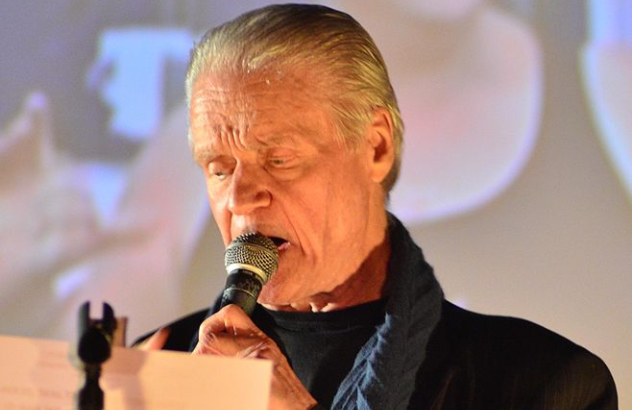
Kim Fowley, who passed away in January 2015, recently made the news because his former client, Runaways bassist Jackie Fox (Fuchs), alleged that Fowley raped her in 1975. (Full disclosure: The same Jackie Fuchs has written several articles for Listverse.) (Aside from his completely inexcusable acts, Fowley was known as one of the hardest-working men in the music world. Fowley worked with acts from KISS to Alice Cooper to the previously mentioned Runaways. He also started a very well-known concert fad: During the Toronto Rock and Roll Festival in 1969, Fowley asked the crowd to hold up their cigarette lighters during John Lennon’s performance.)
Unfortunately, Fowley had an obsession with teenage girls. In 1975, Fowley printed an ad in the magazine Back Door Man in which he requested 18-year-olds, or younger if they were emancipated. He didn’t stop there. Kari Krome was a 13-year-old songwriter whom Fowley met at Alice Cooper’s birthday party in 1975. He fell in love with her and hired her. According to Krome, Fowley sexually assaulted her when she was only 14.
Fowley was at the top of his game when he held a party where Jackie Fuchs was given several Quaaludes. He proceeded to rape her. No charges were ever filed, and the Runaways eventually broke ties with Fowley in 1977. In spite of Fuchs’s claim, others have spoken highly of Fowley. When he died, Joan Jett, lead singer of the Runaways, tweeted: “Kim was a friend, he taught me so much . . . I am very sad.”
6 Albert Grossman
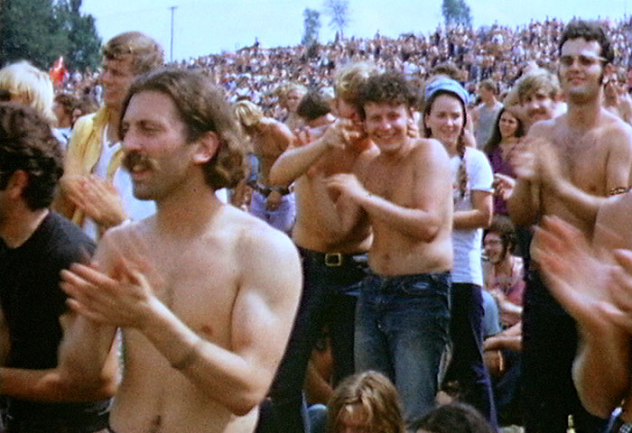
Albert Grossman was involved with 1960s music figures from the group Peter, Paul and Mary to icon Bob Dylan. He almost single-handedly began the folk music movement in 1959 with the Newport Folk Festival. He formed Peter, Paul and Mary in 1961, which became his first successful group. He began working with Bob Dylan soon afterward.
Grossman created a legacy for himself when he moved to Bearsville, New York, near Woodstock, in the late 1950s. It was there that he began to work with Dylan on his albums, which made him the iconic figure that he became. Grossman also began to work with a young promoter named Michael Lang, who organized the Woodstock Music Festival in 1969. Grossman crossed from folk music to rock when he agreed to manage Janis Joplin. Their time together was short lived, however; Joplin tragically died of an overdose in 1971. Grossman operated a recording label, Bearsville Records, which worked with Foghat and Todd Rundgren.
Grossman was famous in the industry for his ability as a negotiator. His acts and clients were paid the most and treated the best. For this, he was highly acclaimed by his peers. Sadly, Grossman died of a heart attack in 1986 at the age of 59 while on a flight to England. After his death, Grossman’s interests were managed by his widow, Sally Grossman.
5 Peter Grant
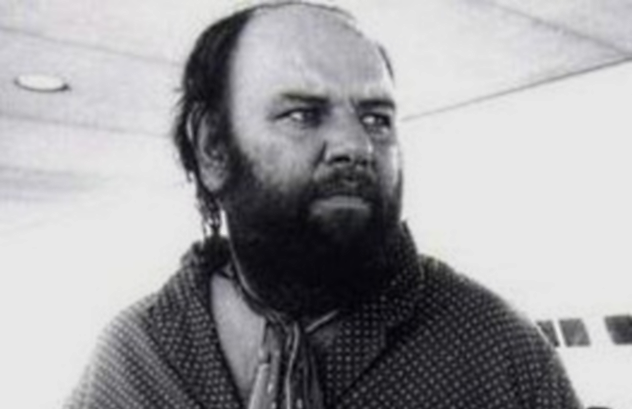
Peter Grant was the manager for Led Zeppelin. Grant had worked as a bouncer, sheet metal worker, and even as a wrestler before he finally broke into the music industry and eventually as the exclusive manager for Zeppelin. One of Grant’s suggestions, which made the band enormous amounts of money, was the idea that the band would not perform on television, causing fans to have to see them live. This suggestion was less about money and more about quality and the fact that Led Zeppelin’s music didn’t work well for 1970s televisions.
Another time, at the 1979 Knebworth Festival, the festival management claimed that only 100,000 tickets had been sold. Grant disputed the claim, and to prove his point, he hired a helicopter to take him up and give him an aerial view of the festival. He had photographs taken and given to professional analyzers who confirmed that Grant was right. The festival management paid the band what it was due.
Grant’s tireless work allowed Led Zeppelin to be one of the most financially successful bands of the era. However, after drummer John Bonham died in 1980, Led Zeppelin disbanded, and Grant retired. He continued to live hard, struggling with drug abuse and diabetes, until his death in 1995 of a heart attack at age 60.
4 Dee Anthony

Dee Anthony was successful in bringing many British acts to the United States after Beatlemania made the American market the place that every band wanted to be. However, even before Beatlemania upended the music world, Anthony dealt with notable musicians like crooners Tony Bennett and Jerry Vale. Anthony was born in the Bronx, where he first befriended Vale. Later, after Anthony returned from World War II, where he served in the submarine force, he began managing Vale’s bookings and soon started working for Tony Bennett as well.
Throughout the 1950s, Anthony worked mostly with American crooners until British acts became even more popular. In 1968, Dee Anthony began working with Humble Pie, a British rock group that was led by Peter Frampton. Anthony left the band along with Frampton, who wanted to go solo, and they achieved the greatest success of their careers. Frampton, under Anthony’s management, achieved great success with his live album Frampton Comes Alive! However, Frampton also experienced failure in the form of his follow-up album I’m in You, which Anthony rushed him to make. Soon after that, Anthony put Frampton into the notorious musical film flop Sgt. Pepper’s Lonely Hearts Club Band.
Frampton and Anthony parted ways in the late 1970s, but that didn’t stop Anthony, who went after new clients like popular 1980s band Devo. Anthony retired in the mid-1990s, but his way of doing business lived on. As he once put it: “No. 1: Get the money. No. 2: Remember to get the money. No. 3: Don’t forget to always remember to get the money.” After his retirement, Anthony lived in Connecticut, where he died in 2009 at 83 years old.
3 Lou Pearlman
Lou Pearlman engineered the 1990s boy band craze, but he is now remembered less for his role in managing such hit acts the Backstreet Boys and NSYNC as he is for running one of the longest Ponzi schemes in financial history. He started working in the 1980s on an advertising blimp business, which was successful in drawing in investors. Soon, Pearlman began to advertise to his investors that he was starting an aviation business, Trans Continental Airlines, which never actually existed. The huge amounts of cash that were created by Pearlman’s various schemes allowed him to make enough money to fund his own fantasy—a boy band.
In 1993, Pearlman formed the group Backstreet Boys, which became the most successful boy band of their time. However, as has been alleged by several who knew him, it was less Pearlman’s love of music that formed the band than his love of young boys. Throughout his time managing several boy bands, band members have claimed that Pearlman sexually harassed them while they were in his employ. While legal action has never been taken against Pearlman, the claims haunt him.
In spite of the success of boy bands through the 1990s, the fad soon died down, and Pearlman lost his biggest source of income. He still had investors to pay, who thought that he was still making money from his nonexistent aviation company. Finally, after a multitude of charges and an international hunt for Pearlman that ended in Bali, he was arrested and charged with multiple counts of fraud. In 2008, Pearlman was convicted and sentenced to 25 years in prison.
2 Malcolm McLaren

Malcolm McLaren formed the Sex Pistols, making them one of the most popular bands of the punk era. His extravagant displays of angst and fury allowed the Sex Pistols to rise to the top of the charts and make rock history. McLaren began his career as a fashion designer in London in the 1970s, after being thrown out of several art schools for his disruptive behavior. Finally, he and his friend, Vivienne Westwood, opened a punk clothing shop in London called Let It Rock. The store was run terribly. It opened in the evenings and stayed open for only a few hours in an effort to “work as little as possible.”
When the New York Dolls went to the store in 1972 (by then it was renamed Too Fast to Live, Too Young to Die), McLaren followed them and soon began to manage them in America. There, he put on his typical punk show, but it wasn’t received well, and the band faltered.
After returning to England, McLaren started working with the group the Strand, which became the Sex Pistols. Their rendition of the song “God Save the Queen” became a hit, and the group was on their way to stardom. McLaren knew that they needed to be the most outlandish of all, so he arranged for the band to play “God Save the Queen” on a boat on the River Thames outside of Parliament when Queen Elizabeth would be visiting. Such displays made them enormously popular until they broke up in 1978.
McLaren started another fashion store and called it World’s End, which proved successful. Not content to remain just a manager, McLaren started to record his own albums, which became successes themselves. He remained a prominent figure in the music industry, even branching out into film and television, until his death of mesothelioma in 2010 at the age of 64.
1 Andrew Loog Oldham
Andrew Loog Oldham was the first manager of the Rolling Stones. He was the one who truly first breathed life into the band and made it into the great that it became. Before Allen Klein, Oldham kept them on track and made history. Oldham was only 19 when he began managing the Rolling Stones. His first decision was to drop Ian Stewart, the group’s pianist, from the band, making them exclusively a group of slender young men. From there, Oldham encouraged their bad boy image, which stood in direct contrast to the image being cultivated by the Beatles at the same time. This move allowed for a whole new following to emerge.
The band soon became enormously popular in Great Britain, where Oldham’s skills as a deal maker were untouched by any other. Oldham managed to swing an even better deal for the Rolling Stones than Brian Epstein had for the Beatles. Epstein didn’t have an ear for music; Oldham, on the other hand, often contributed to the band when they made music. Oldham continued to foster the band’s bad boy image while making one for himself. He began to use drugs and developed a severe problem. By 1967, Oldham could no longer handle the group, and they turned to Allen Klein for guidance.
Oldham tried to work for several other groups, unable to find success. As his drug problem continued to worsen, Oldham moved to Bogota, Colombia, where he married a model in the mid-1980s. Oldham finally beat his drug addiction in the 1990s and wrote two successful memoirs about his times with the Rolling Stones, Stoned and 2Stoned. Oldham managed to rehabilitate his reputation, and in 2014, he was inducted into the Rock and Roll Hall of Fame.
Gordon Gora is a struggling author who is desperately trying to make it. He is working on several projects, but until he finishes one, he will write for Listverse for his bread and butter.





